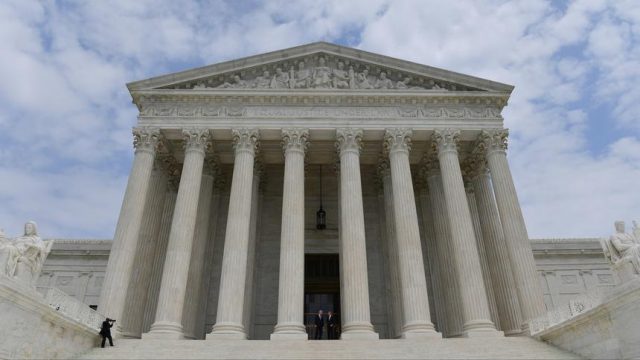The Fight Over Online Sales Taxes Cannot Be About Fairness

“Our view: Put online sellers on equal footing,” is the headline over a Grand Forks Herald editorial today, making the point that the U.S. Supreme Court should back South Dakota’s law instituting a 4.5 percent sales tax on online sales of retailers doing more than $100,000 in annual business.
It’s a case with national implications because it challenges the precedent set in the 1992 SCOTUS case Quill vs. North Dakota which held that retailers without a physical presence in a state cannot be subjected to that state’s sales taxes (I wrote about that case earlier this week as well).
That case was ruled on before the days of the internet, and the boom in online commerce, and today many (including the editorial board of the Herald) argue that the Quill precedent is unfair to brick-and-mortar retailers who find themselves collecting a tax their online competitors (at least those without a physical presence in their state) are not obligated to collect.
“[T]he online seller certainly shouldn’t be rewarded with an advantageous tax break that puts Main Street in peril,” the Herald opines.
But the courts aren’t in the business of fairness. They are in the business of adjudicating the law. And the law in this instance is pretty clear.
[mks_pullquote align=”right” width=”300″ size=”24″ bg_color=”#ffffff” txt_color=”#000000″]To overturn the Quill precedent would be to set a new precedent weakening the interstate commerce clause and giving states new powers to push their laws and regulations far beyond their borders.[/mks_pullquote]
Article I, Section 8 of the U.S. Constitution grants Congress the power “To regulate Commerce with foreign Nations, and among the several States, and with the Indian Tribes.”
Interstate commerce – such as online transactions for goods and services across state lines – is to be regulated by Congress. Not the states.
To overturn the Quill precedent would be to set a new precedent weakening the interstate commerce clause and giving states new powers to push their laws and regulations far beyond their borders.
Given that North Dakota is a state which does a lot of interstate commerce – most of what our biggest industries, agriculture and energy, produce is shipped far outside of our borders – the last thing we want is a weaker commerce clause.
Remember that years-long court battle North Dakota fought with Minnesota over our eastern neighbor’s attempt to inhibit the flow of coal-fired electricity into their state? North Dakota won that fight, and the commerce clause was the reason why. Congress, not the State of Minnesota, regulates interstate commerce.
But perhaps that wouldn’t be the case any more if the Supreme Court overturns Quill.
To the extent that online sales tax issue is one in need of fixing – I think it’s impact on brick and mortar retail is exaggerated, they’re losing business to online retailers because of issues like price and convenience and selection not because of the sales tax – the fix should come from Congress.
When we were discussing this issue on my radio show this week a caller pointed out that the federal government already collects fuel taxes from commercial truckers and shares the revenue back to the states proportionally. Perhaps a similar federal program could be established for collecting and remitting sales taxes from online retailers.
That sort of solution would address the wants of so-called “Main Street” retailers while abiding by the Constitution.
As for the courts, they should do what’s constitutional. Not what meets some faction’s notions about fairness.




